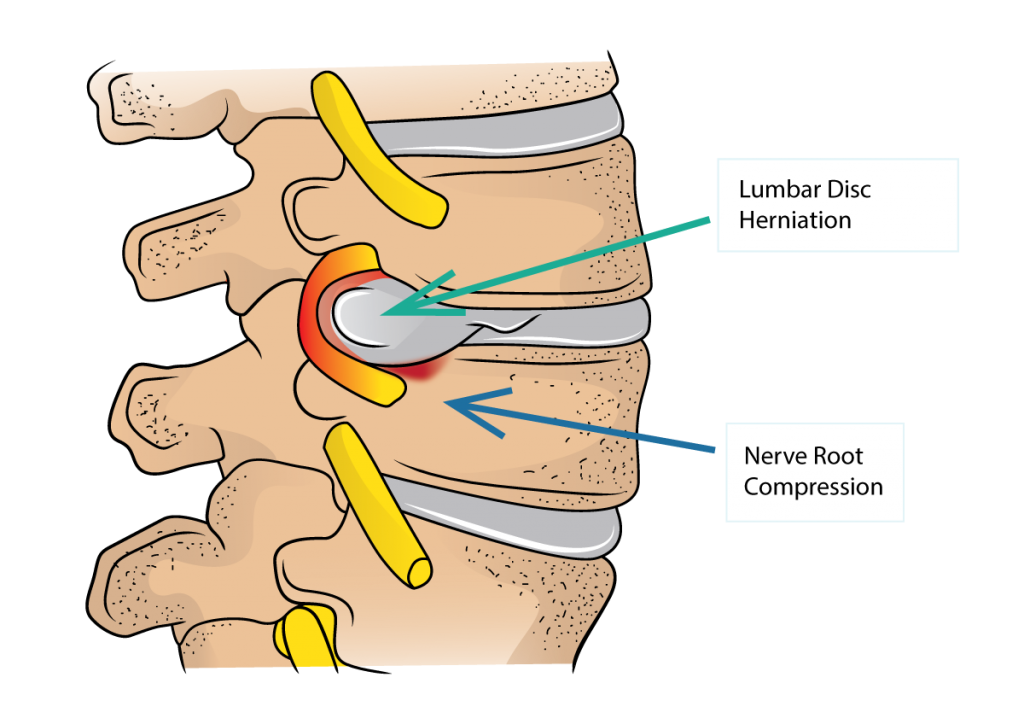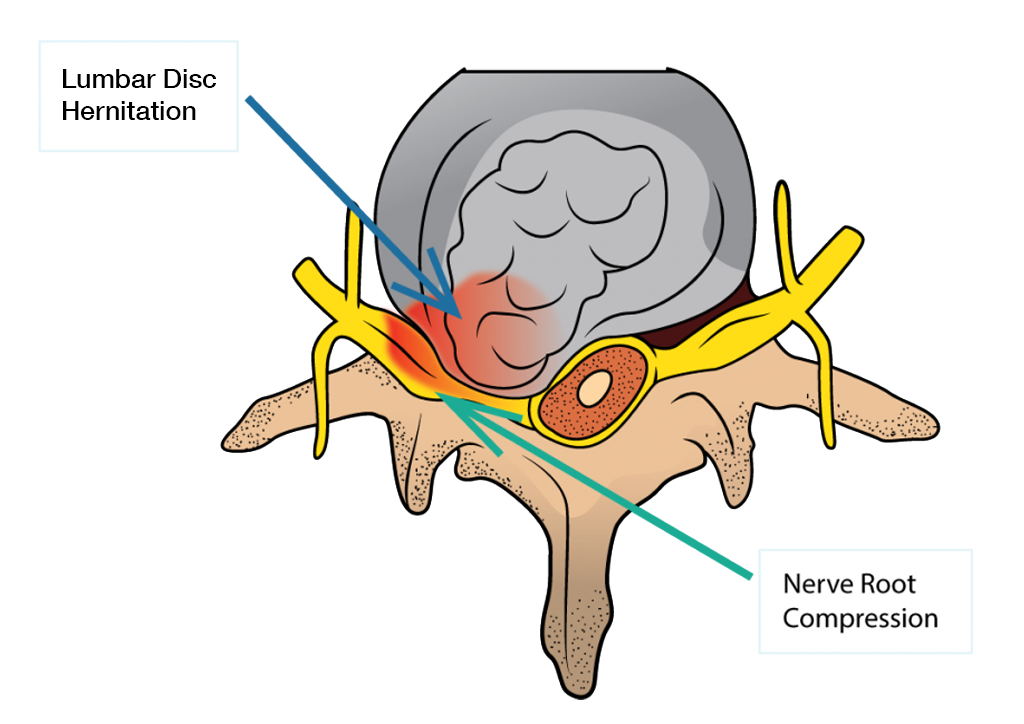Dr Lee treats all conditions of the lumbar spine.


There are five bones (know as vertebra) that comprise the lumbar spine. Between each lumbar vertebra, lies the intervertebral disc, which acts as a shock absorber during back movement. The intervertebral disc is susceptible to the aging process, and it can lose its elasticity overtime with progressive weakening of the covering (annulus) that contains the gel like properties of the intervertebral disc (nucleus pulposus).Lumbar disc herniation is a condition where there is bulging or protrusion of disc material of the lumbar spine, which may cause spinal nerve compression.
Sciatica, or lumbar radiculopathy, occurs when spinal nerve compression causes shooting pain down the back of the leg, commonly beyond the knees and occasionally into the foot. Sciatica may also be associated with numbness or pins and needles in a particular region of the leg supplied by the compressed nerve (dermatome). Occasionally sections of the leg muscles may become weak due to nerve compression.
Dr Lee focuses on obtaining accurate diagnosis before implementing treatment.
In general, symptomatic disc herniation will improve overtime. Studies have shown that 60% of patients will recover within a six-week period and 80% of patients will recover within three months.
Most lumbar spinal conditions will not require surgery unless there is evidence of nerve damage. Dr Lee may recommend a course of non-operative treatment, including epidural injection for disc herniation. An epidural steroid injection may help to reduce inflammation around the nerve and improve sciatica pain associated with disc herniation.
If non-operative treatment fails, then surgery may be required. Very rarely, disc herniation can cause cauda equina syndrome which can be a serious problem. Please seek urgent medical attention if you experience any of the following:
- Weakness in the legs
- Difficulty urinating or controlling urination
- Loss of control of bowel movement
- Numbness in the genital area
Dr Lee commonly performs a discectomy for disc herniation of the lumbar spine.
Discectomy
Discectomy involves surgical removal of protruding intervertebral disc material. This surgery may be performed using a microscope, also known as microdiscectomy. The aim of the surgery is to remove disc material that is protruding or loose and is compressing the nerve root, the remainder of the intervertebral disc is not removed.

